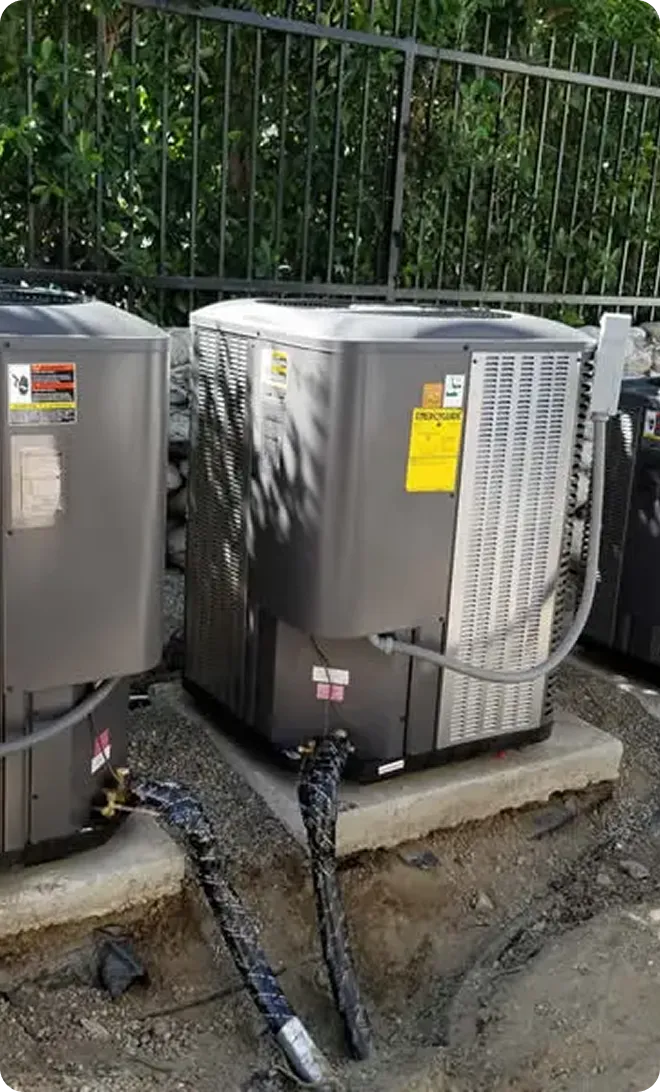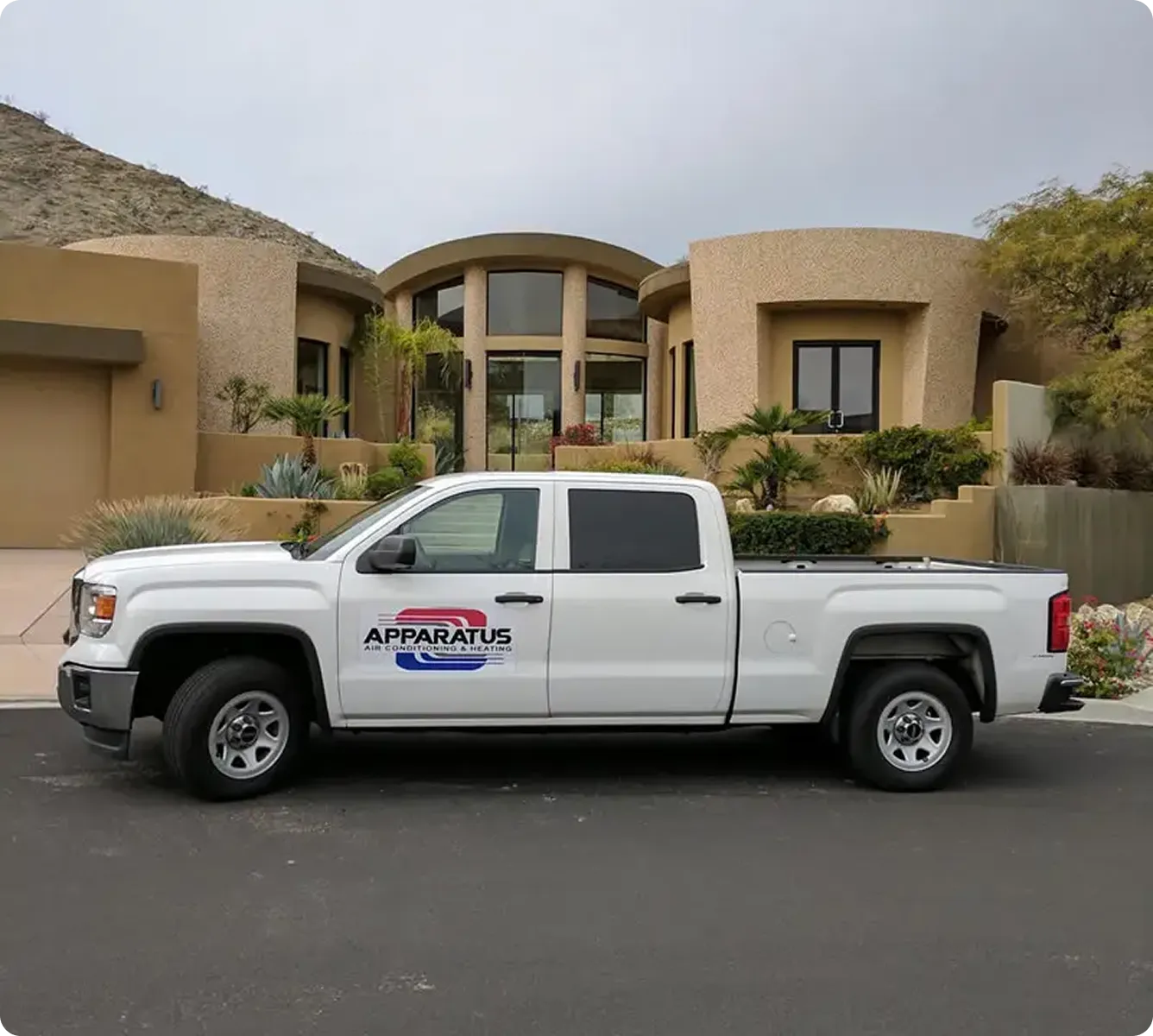
Water Heater Tune Up in Palm Springs, CA
Water Heater Tune Up in Palm Springs, CA
A regular water heater tune up in Palm Springs, CA keeps hot water flowing reliably, lowers operating costs, and prevents small problems from turning into emergency repairs. In desert communities like Palm Springs, mineral-heavy water and year-round temperature swings make routine maintenance especially important. A professional tune up targets sediment, scale, ventilation, and safety components so your water heater runs efficiently and lasts longer.
-min.webp)
Why a tune up matters in Palm Springs homes
- Hard water and mineral scale. Palm Springs area water often carries higher mineral content that accelerates sediment and scale buildup inside tanks and on heating elements. Scale reduces heat transfer and increases energy use.
- High demand and year-round use. Even in hot climates, households still use hot water for showers, laundry, and dishwashing. Constant cycling can wear components faster.
- Safety and ventilation concerns. Gas units can develop venting or combustion issues that are hazardous if not checked regularly.
- Preventive savings. Routine service reduces the chance of sudden failures and helps maintain manufacturer warranties and resale value.
Common water heater types in Palm Springs and typical issues
- Conventional storage tank (gas or electric): Sediment buildup, corroded anode rod, failing sacrificial anode, leaking fittings, noisy operation, slow recovery.
- Tankless water heaters: Mineral scale on heat exchanger, burner inefficiency, flow sensor problems, error codes from electronic controls.
- Hybrid or heat pump water heaters: Refrigerant or compressor issues, reduced efficiency from clogged condensate or filters.
Tune up checklist — what a professional inspects and services
A thorough water heater tune up follows a consistent checklist to address performance, safety, and longevity. Key items include:
- Tank flushing and sediment removal. Drain and flush the tank to remove accumulated sediment that reduces efficiency and causes rust.
- Anode rod inspection and replacement if needed. Check sacrificial anode for corrosion; replace to prevent tank corrosion.
- Burner or heating element cleaning. Clean gas burners and inspect the pilot or clean electric elements to restore proper heat transfer.
- Thermostat and control checks. Verify thermostat accuracy and adjust temperature settings for safety and efficiency.
- Inspection of valves and connections. Tighten or replace leaking fittings, check the temperature and pressure relief valve, and test drain valves.
- Pressure and temperature testing. Confirm operating pressure and temperature settings, and test for proper recovery time.
- Combustion and venting inspection (gas units). Check combustion efficiency, vent integrity, and carbon monoxide risk factors.
- Leak and corrosion assessment. Look for signs of external corrosion, pitting, and hidden leaks at fittings and the tank base.
- Insulation and pipe wrap inspection. Inspect and recommend insulation on exposed hot water lines or the tank to reduce standby losses.
- Electronic diagnostics (tankless/hybrid). Read and clear error codes, verify flow sensors, and confirm burner modulation.
Performance and efficiency testing
During the tune up, technicians will measure performance to quantify improvements:
- Recovery time test. Measure how quickly the unit returns to temperature after a draw. Excessive recovery time indicates reduced efficiency or failing elements.
- Temperature consistency. Verify hot water temperature at multiple fixtures to identify distribution or thermostat issues.
- Combustion efficiency check (gas). Test flame pattern and combustion to ensure safe, efficient operation.
- Energy use indicators. While no billing analysis is performed on-site, technicians can identify components that drive up energy use, such as poor burner efficiency or scale-covered elements.
Time estimates for a typical tune up
- Standard tank water heater: Most tune ups take approximately 45 to 90 minutes depending on sediment level and whether anode replacement or minor repairs are needed.
- Tankless or hybrid units: These often take 60 to 120 minutes because of descaling needs and electronic diagnostics.
- Multiple-unit homes or complex installations: Allow additional time for each unit and for addressing confined or hard-to-access installations.
Recommended service intervals for Palm Springs
- Annual tune up. For most Palm Springs homes, an annual water heater tune up is recommended to keep scale and sediment under control and to maintain safety checks.
- Every 6 months for hard water or heavy use. If you have especially hard water, large household demand, or multiple occupants, consider semi-annual service or installing a water softening measure upstream.
- After any malfunction or long inactivity. If the unit has been without power for extended periods, experienced strange noises, or experienced a leak, schedule a check before regular use resumes.
What to expect after a professional tune up
A properly executed tune up delivers measurable and practical benefits:
- Improved reliability. Fewer unexpected cold showers and emergency calls because weak components are identified before failure.
- Better efficiency and lower operating costs. Removing sediment and cleaning burners or elements restores heat transfer, reducing the energy required to maintain hot water.
- Longer equipment life. Replacing or servicing anode rods, valves, and elements delays corrosion and premature tank replacement.
- Safer operation. Verifying pressure relief valve function, combustion efficiency, and venting reduces the risk of leaks and combustion-related hazards.
- More consistent hot water. Faster recovery times and stable thermostat performance mean consistent temperatures at taps and appliances.
Signs you need a tune up now
- Rumbling or popping noises from the tank
- Brown, discolored, or metallic-tasting hot water
- Noticeably slower hot water recovery after normal usage
- Frequent pilot outages or burner problems on gas units
- Visible leaks or pooling around the tank base
- Warning or error codes on tankless units
Simple maintenance tips for Palm Springs homeowners
- Keep the area around the heater clear for airflow and technician access.
- Consider an in-line sediment filter or whole-house water treatment if mineral buildup is recurring.
- Lower thermostat settings slightly if possible; each few degrees can reduce energy use without sacrificing comfort.
- Monitor hot water color and sounds between services so issues are caught early.
A water heater tune up in Palm Springs, CA is a practical investment that improves safety, restores efficiency, and extends the life of your system. Regular maintenance tailored to desert conditions and mineral-heavy water helps prevent common failures and keeps your home running smoothly.

hear what our satisfied
clients have to say









.webp)